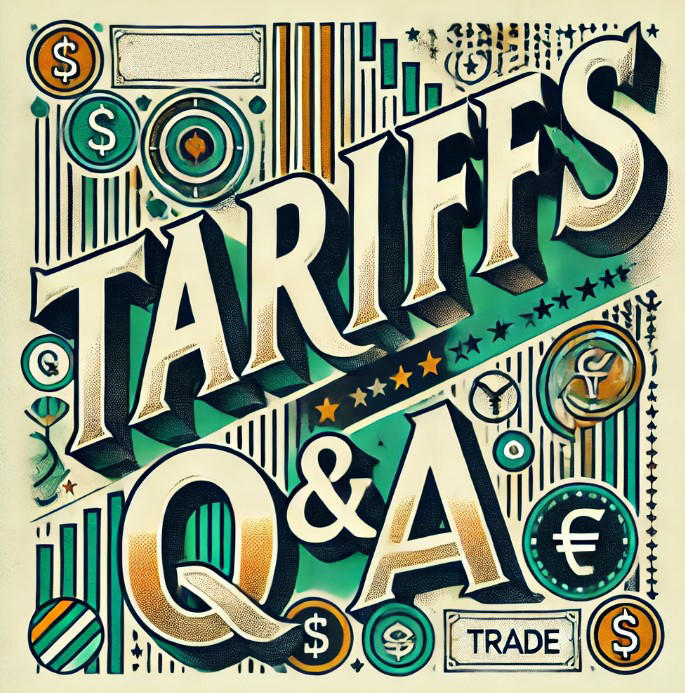Tariffs

What is a tariff?
A tariff is a tax that a government places on imported goods (and sometimes exported goods). The tariff is paid by the person or company who imports the goods. They have the option of passing the tax on to their clients or absorbing all or part of it.
Who has the authority to impose tariffs?
The Constitution grants Congress the power to impose tariffs.
Article I, Section 8 of the U.S. Constitutions:
“The Congress shall have Power… To lay and collect Taxes, Duties, Imposts and Excises.”
Duties and imposts include tariffs
By what authority does President Trump have to impose tariffs?
Trump claims the power to impose sweeping tariffs under this act –
International Emergency Economic Powers Act (IEEPA) of 1977
-
Allows the President to regulate commerce during a declared national emergency.
-
Trump sometimes cited it as a potential tool (for example, threatening tariffs on Mexico over immigration issues).
Here are two other options Trump could have used.
Section 232 of the Trade Expansion Act of 1962
-
Allows the President to adjust tariffs if the U.S. Department of Commerce finds that imports threaten national security.
-
Trump used this to impose tariffs on steel and aluminum in 2018.
-
“National security” was interpreted broadly — not just military needs, but also the health of key industries.
Section 301 of the Trade Act of 1974
-
Lets the U.S. Trade Representative investigate and respond to unfair trade practices by foreign countries.
-
Trump used this against China, imposing tariffs on hundreds of billions of dollars in Chinese goods after finding issues like intellectual property theft.
What do the courts say?
The Trump tariffs are currently being litigated in court due to various legal challenges.
The US Constitution vests Congress with the power to apply tariffs. The nation’s founders were very clear on this point: “The Congress shall have Power To lay and collect … Duties. . . . To regulate Commerce with foreign Nations.” There is no mention in the Constitution of the president having any role over tariffs. The role of the president is to administer the laws that Congress passes. The president exercises delegated authorities governing international trade under whatever terms Congress lays out.